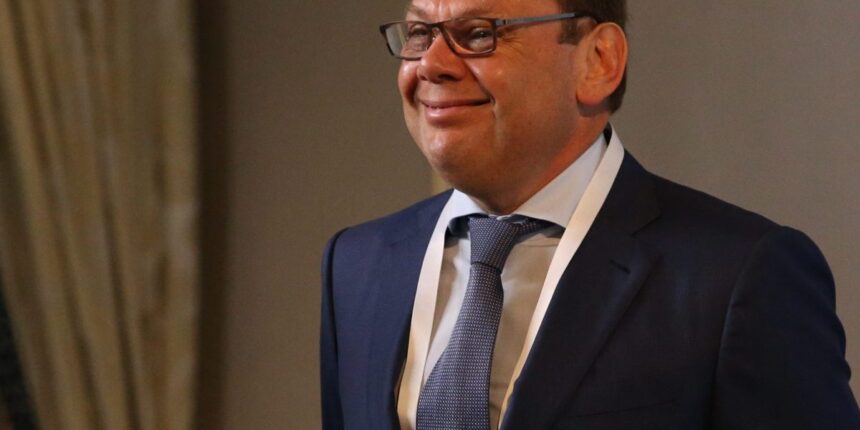A Russian billionaire who quit the U.K. last month was refused the use of a personal driver after Britain’s high court said he was able to use public transport.
Mikhail Fridman, one of the co-founders of Alfa Group, is fighting U.K. sanctions in court a month after leaving Britain to reside in Israel, saying he couldn’t continue living under the country’s sanctions.
He has since fled back to Moscow following Hamas’s attack on Israel.
Fridman, alongside his former business partner Petr Aven, was sanctioned by the U.K. and the EU in the wake of Russia’s invasion of Ukraine. Fridman and Aven founded Alfa Group, which owns Russia’s largest private bank.
In the time Fridman resided in the U.K. under sanctions, he fought several battles with the country’s high court to gain access to living costs while pushing to distance himself from any ties to Russian President Vladimir Putin.
Fridman said his London mansion, Athlone House, was searched illegally by 50 officers wearing body armor and helmets last December, Bloomberg reported.
He also alleged the National Crime Agency misled judges using “kompromat,” or “damaging and untrue information assembled and used to create negative publicity and to exert influence over the subject,” Bloomberg reported Fridman’s lawyer as saying.
In September, the U.K. withdrew its labeling of Fridman as a “pro-Kremlin oligarch,” but continued sanctioning him under updated terms related to his ties to Alfa Group, in part based on evidence gained in the raid on his home.
Extensive concessions
Fridman, who is worth an estimated $12.2 billion, has also enjoyed extensive concessions that allowed him to continue living in Athlone House, his £65 million ($79.3 million) mansion in the affluent North London suburb of Highgate.
In July, the New York Times reported that Fridman was provided a license for 19 staff including drivers and private chefs, amounting to $400,000 over 10 months.
The Times also reported that Fridman received $7,000 per month for family allowances.
In total, he has been allowed expenses of £1 million ($1.2 million) to cover basic expenses, a lawyer for the government told Bloomberg.
Aven, his former business partner, was granted a license for a monthly allowance of £60,000 ($73,200), the Times reported. At the time, the paper questioned the U.K. policy that allowed concessions for sanctioned individuals if it aided the country’s economy—an approach that diverges from U.S. policy.
Struggles over further expenses
However, according to court documents seen by Bloomberg and Reuters, Fridman has since struggled to gain licenses for further expenses.
On Tuesday, Fridman challenged the U.K. over its decision to refuse him a fresh license for a £30,000 ($36,500) management fee to cover extensive maintenance costs for Athlone House.
He also requested fees for non-security staff in addition to audio and TV equipment and an internal phone line. The legal filing reviewed by Bloomberg indicated Fridman suffered a “security incident” at his mansion in September.
Fridman’s lawyer said he was also refused a license to pay for a personal driver “on the basis that the defendant is able to travel by public transport,” Bloomberg reported.
Fridman didn’t specify how much of his requests for audio and TV equipment were related to entertainment versus security, a U.K. government lawyer told Bloomberg.
The lawyer added that giving Fridman permission to cover more expenses would allow him to live a life very similar to that before he was sanctioned.
In July, a lawyer for Fridman told a European court the financier’s life had been “destroyed” by sanctions, Bloomberg reported.
In February, Ilya Yashin, an opposition politician jailed by the Kremlin, pleaded with EU and U.K. officials from his prison cell for sanctions against Fridman to be lifted.
Yashin said Fridman “interacted with the state, but nevertheless never compromised his reputation by participating in the current Russian government’s political projects.”
The U.K. government didn’t immediately respond to Fortune’s request for comment.








